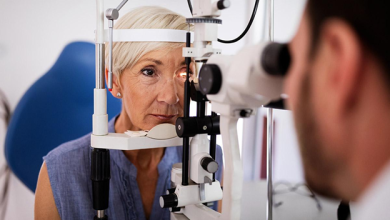The Role Of Orthopedic Surgeons In Occupational Health

Orthopedic surgeons play a vital role in occupational health. They diagnose and treat musculoskeletal problems that arise from workplace injuries. Stephen Fisher, MD, highlights the importance of their work in keeping employees healthy and productive. By addressing issues like back pain and repetitive strain injuries, orthopedic surgeons help prevent long-term disabilities. Their expertise ensures a safer work environment and faster recovery.
Understanding Occupational Injuries
Occupational injuries are common in many fields. They include strains, sprains, fractures, and dislocations. These injuries can happen due to repetitive movements, poor ergonomics, or sudden accidents. According to the Centers for Disease Control and Prevention (CDC), work-related musculoskeletal disorders are a leading cause of workplace injury and illness.
Orthopedic Surgeons: Key Contributors
Orthopedic surgeons are trained to handle these specific issues. They use their skills to diagnose problems accurately. They provide treatments that help patients return to work safely. These specialists focus on:
- Accurate diagnosis of musculoskeletal conditions
- Developing treatment plans that suit individual needs
- Performing surgeries if necessary to correct severe injuries
Surgeons also work closely with other healthcare providers. This teamwork ensures comprehensive care for the injured worker.
Prevention and Education
Prevention is a crucial part of occupational health. Orthopedic surgeons often offer guidance on how to avoid injuries. They provide advice on proper body mechanics and ergonomic practices. Education initiatives can significantly reduce the risk of recurrent injuries. This proactive approach helps maintain a healthy workforce.
The Role of Technology
Technology plays an important role in occupational health. Advanced imaging techniques like MRI and CT scans help in precise diagnosis. Minimally invasive surgery options lead to faster recovery times. Orthopedic surgeons utilize these technologies to improve patient outcomes effectively.
Recovery and Rehabilitation
Recovery does not end with surgery or treatment. Rehabilitation is a key part. Physical therapy helps regain strength and flexibility. Surgeons often collaborate with physiotherapists to create a personalized rehab plan. This approach ensures that patients return to their daily activities with confidence.
Statistics on Workplace Injuries
| Type of Injury | Percentage of Total Workplace Injuries |
|---|---|
| Sprains and Strains | 35% |
| Fractures | 10% |
| Back Injuries | 20% |
This table shows that sprains and strains are the most common. Orthopedic surgeons are crucial in managing these conditions.
The Importance of Follow-Up Care
Follow-up care is essential to ensure full recovery. Regular check-ins allow for monitoring of the healing process. Adjustments to treatment plans can be made as needed. This careful attention prevents complications and ensures long-term health.
Conclusion
Orthopedic surgeons are indispensable in the realm of occupational health. Their expertise helps prevent, diagnose, and treat injuries effectively. By focusing on both prevention and recovery, they ensure a healthier workforce. Their work not only benefits individual patients but also enhances overall workplace productivity and safety. For more information on occupational health, the Occupational Safety and Health Administration (OSHA) offers valuable resources.




